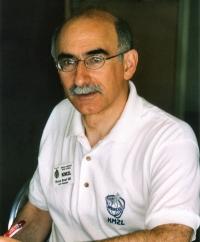This post from Chip, N5RTF of New Orleans:
During hurricane Katrina, up to 7 levee breaches occurred simultaneously in widely separated locations, affecting structures of different ages and design, all which have withstood many previous high water and wind events. After a good deal of thought plus listening to 'experts' on the news who clearly don't have a clue, I sent the following hypothesis to several engineers including a group up at Bruce's universty in Buffalo for evaluation. I pass it on to you guys for critique and/or dissemination. Do you think this is possible?
Multiple organizations have dispatched investigators to analyze causes of levee failures in New Orleans during hurricane Katrina. Theories include veins of weak soil, overtopping, undermining, and defective construction. Most fail to explain why levees which have been in place for 15 years failed simultaneously during this, but not other, storms.
I am writing to you because of MCEER's dual interest in hurricanes and earthquakes. It seems to me that the damage to several of New Orleans' levees closely resembles that caused by soil liquefaction during earthquakes. Although New Orleans has never experienced a fault-based quake, microseismic activity has been clearly recorded during hurricanes on multiple occasions.
It is my proposal that the 100+ decibel roar of a Category 4 hurricane for 6-8 hours, along with conduction from vibrating structures into the ground through foundations and anchors could produce an environment for wave summation similar to that seen in an earthquake. In this situation the saturated soil of an earthen dam would be especially susceptible to liquefaction and failure.
As a physician who lives and works in New Orleans I have more than an academic interest in finding the correct answer. If a hurricane can acoustically liquify soil, no earthen levee will ever be safe in a hurricane-prone area. This has major implications in the rebuilding of New Orleans.
Thank you for taking the time to read this. If you feel that the idea has merit, I hope you will pass it along to persons within your center who have the resources to pursue it further.
Sincerely,
Thomas L. Keister, Jr. M.D.
Subscribe to:
Post Comments (Atom)

No comments:
Post a Comment